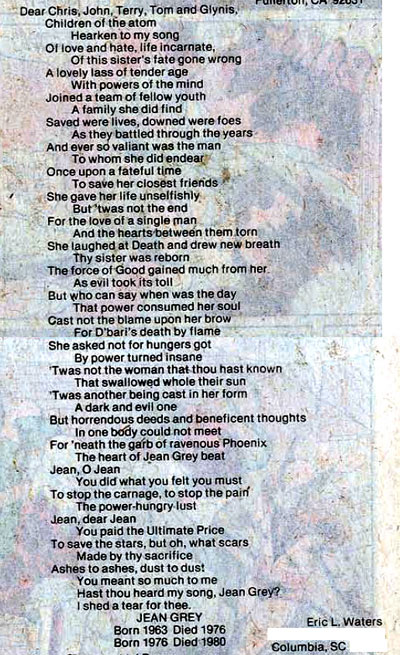Sad Poetry About Life Biography
Source(Goglw.com.pk)A poem about a person whom we know both so much and so little about: how this paradox reflects a truth about poetry and psychotherapy
By Henry M. Seiden, PhD, ABPP
Psychoanalytic clinicians are no strangers to incomplete narratives: to stories assembled from the bits and pieces of our patients’ unreliable and unsystematic reports about their lives. We take what we can get, gather the details, and together with the patient, construct a more coherent and, hopefully, a more liberating narrative. We know we never have the whole picture—we’re always connecting the dots, making constellations from only the most visible stars.
Poets study a version of the same problem: how much do you need to know to know the story, how much will you have to say to tell it? Often, because in poetry brevity is its own pleasure, the question becomes, how little can you say? Here’s a wonderful lesson in concision from a contemporary British poet who I suspect will be little known to most readers of DIVISION/Review, Simon Armitage.
About His Person
Five pounds fifty in change, exactly,
a library card on its date of expiry.
A postcard stamped,
unwritten, but franked,
a pocket size diary slashed with a pencil
from March twenty-fourth to the first of April.
A brace of keys for a mortise lock,
an analogue watch, self winding, stopped.
A final demand
in his own hand,
a rolled up note of explanation
planted there like a spray carnation
but beheaded, in his fist.
A shopping list.
A givaway photograph stashed in his wallet,
a keepsake banked in the heart of a locket,
no gold or silver,
but crowning one finger
a ring of white unweathered skin.
That was everything.1
The title, of course, is an artful pun: what is found “about his person” tells the story of the person. And the constellation of details tells the tale—of a suicide, a failed marriage, a failed life. Interestingly, the form of the poem is not technically narrative, not in the sense of “this happened, then this, and then this.” The concluding punch line is a conceptual, not a narrative, one: “A ring of white unweathered skin. / That was everything.” In form, this is a list poem, a list of imagistic and resonant details, additive but in no chronological order, each bouncing off the one before, deepening our sense of the tragic story.
Walt Whitman was the great modernist list maker. But this is not Whitman. Whitman’s lines spill and sprawl across the page. Armitage’s are sculptured and spare, and the images are metonyms: ironic, tension-filled, rhyming double entendres. Each and any of them signal the whole.
A definitional note: metonymy refers to the strategy of indicating something—an action, a person, a situation—indirectly by referring to some other thing associated with it. Metonymy differs from metaphor; metaphor asserts identity. If we say King Richard is “lionhearted,” we use a metaphor: we say that the king is a kind of lion, brave, strong, and fierce. By contrast, if, metonymically, we refer to the king as “the crown,” we indicate his royal position but we don’t imply that the king is like a hat made of precious metal. The crown is associated with the king but not the same as the king. As a common literary device, metonyms can be used like props or stage sets to evoke an emotional situation. For example, “It was a dark and stormy night…” establishes an emotional tone for the events which will unfold (but doesn’t imply that the characters are like rain clouds). Of course, it all depends on context: if one said a character was “stormy,” that would be a metaphor.
Telling metonyms can have powerful resonance. How about, “an analogue watch, self-winding, stopped” as a figure for the life of a man who has taken his own life? And how about the “mortise lock” as an expressive figure—perhaps for his own heart, perhaps for the the heart of one who might have loved him. What does it mean that he’s found with a “brace of keys”? In “About His Person,” the metonyms are piled on in an increasingly grim list: the “date of expiry,” the diary “slashed” with a pencil, the suicide note “like a flower beheaded.”
In our clinical work we know that this is only a little exaggeration of the way experience organizes itself and the way language works— each moment, whether of reported history or of present-day events, of dreaming or of interaction in the consulting room, can be seen as an expression (metonymic or metaphorical or both) of the larger life and experience of the patient.
This is a poem, of course, and not a clinical report. And while a well-done case report brings insight and its own kind of satisfaction, a good part of the pleasure one takes in poetry is its musicality. “About His Person” is assembled in a musical, rhyming chant. (Near rhyme or slant rhyme, speaking technically.) This is in the tradition of W. H. Auden and of Phillip Larkin, both British like Armitage and earlier modern masters of biting rhyming verse. Compare Auden’s “Unknown Citizen”:
He was fully sensible to the advantages of the Installment Plan And had everything necessary to the Modern Man, A phonograph, a radio, a car and a frigidaire. Our researchers into Public Opinion are content That he held the proper opinions for the time of year; When there was peace, he was for peace: when there was war, he went.
The voice in “About His Person” isn’t archly conversational the way Auden’s is. It is more like something a child might skip ropeor bounce a ball to—which gives an ironic innocence to its chilling report. (Our nursery rhymes also may be about things that were not originally so sweet. Take “Ring Around the Rosie”: “Ashes, ashes, we all fall down” had its origin, it has been argued, in the medieval experience of the Black Plague.)
Finally: who is the person this poem is about? We don’t know! This is the central tension in the poem—and perhaps reflects the genius of poetry generally. Even as each resonant detail contributes to and sharpens the clarity of the specific picture, it evokes a larger general mystery, of this and any life, however we might encounter it: in poetry, in fiction, in our consulting rooms, in our own lives.
Armitage’s poetry—along with his biography—is widely available on the Internet. “About His Person” appears in his Selected Poems, published by Faber & Faber in 2001, and originally in a volume entitled Kid, published by Faber & Faber in 1992. It is reprinted by permission of Faber & Faber.
Sad Poetry About Life in Urdu SMS in Urdu Pics by Wasi Shah Wallpapers About Love on Facebook in English

Sad Poetry About Life in Urdu SMS in Urdu Pics by Wasi Shah Wallpapers About Love on Facebook in English

Sad Poetry About Life in Urdu SMS in Urdu Pics by Wasi Shah Wallpapers About Love on Facebook in English

Sad Poetry About Life in Urdu SMS in Urdu Pics by Wasi Shah Wallpapers About Love on Facebook in English

Sad Poetry About Life in Urdu SMS in Urdu Pics by Wasi Shah Wallpapers About Love on Facebook in English

Sad Poetry About Life in Urdu SMS in Urdu Pics by Wasi Shah Wallpapers About Love on Facebook in English

Sad Poetry About Life in Urdu SMS in Urdu Pics by Wasi Shah Wallpapers About Love on Facebook in English

Sad Poetry About Life in Urdu SMS in Urdu Pics by Wasi Shah Wallpapers About Love on Facebook in English

Sad Poetry About Life in Urdu SMS in Urdu Pics by Wasi Shah Wallpapers About Love on Facebook in English

Sad Poetry About Life in Urdu SMS in Urdu Pics by Wasi Shah Wallpapers About Love on Facebook in English

Sad Poetry About Life in Urdu SMS in Urdu Pics by Wasi Shah Wallpapers About Love on Facebook in English

Sad Poetry About Life in Urdu SMS in Urdu Pics by Wasi Shah Wallpapers About Love on Facebook in English

Sad Poetry About Life in Urdu SMS in Urdu Pics by Wasi Shah Wallpapers About Love on Facebook in English

Sad Poetry About Life in Urdu SMS in Urdu Pics by Wasi Shah Wallpapers About Love on Facebook in English

Sad Poetry About Life in Urdu SMS in Urdu Pics by Wasi Shah Wallpapers About Love on Facebook in English

Sad Poetry About Life in Urdu SMS in Urdu Pics by Wasi Shah Wallpapers About Love on Facebook in English

No comments:
Post a Comment